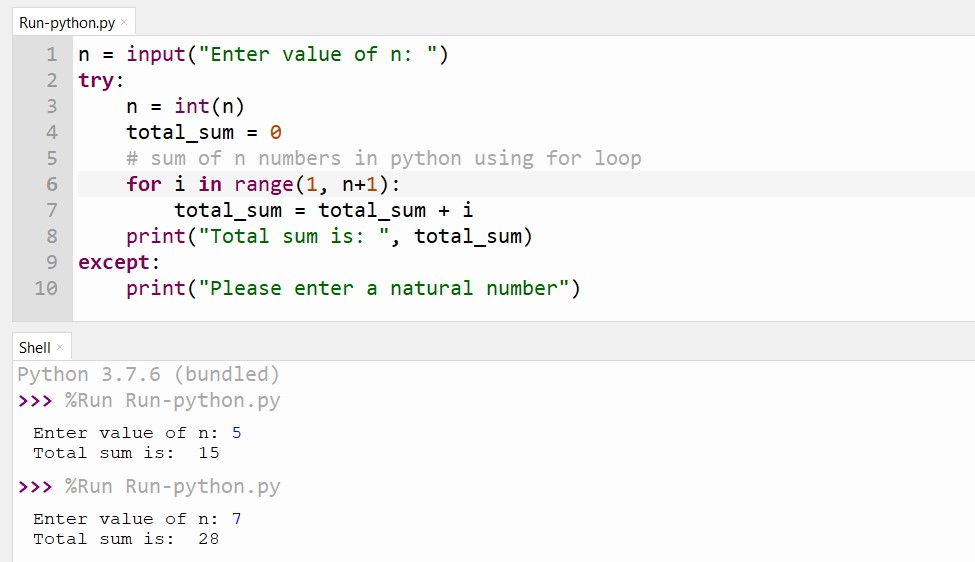Here, in the sum of n numbers in Python using for loop, n means a natural number i.e. counting numbers(1, 2, 3, 4, 5,…).
Code for Sum of n numbers in Python using for loop is
n = input("Enter value of n: ")
try:
n = int(n)
total_sum = 0
# sum of n numbers in python using for loop
for i in range(1, n+1):
total_sum = total_sum + i
print("Total sum is: ", total_sum)
except:
print("Please enter a natural number")Output:

Also Read:
- Python | Check Armstrong Number using for loop
- Python | Factorial of a number using for loop
- Create your own ChatGPT with Python
- Radha Krishna using Python Turtle
- Python Programming Examples | Fundamental Programs in Python
- Python | Delete object of a class
- Python | Modify properties of objects
- Python classmethod
- Python | Create a class that takes 2 parameters, print both parameters
- Python | Create a class, create an object of the class, access, and print property value
- Python | Find the maximum element in a list using lambda and reduce()
- Python | filter numbers(that are not divisible by 3 and 4) from a list using lambda and filter()
- Python | lambda function that returns the maximum of 2 numbers
- Python | Convert all strings of a list to uppercase using lambda
- Python | Square numbers of a list using lambda
- Python | Reverse and convert a string to uppercase using lambda
- Python | Convert String to uppercase using lambda
- Python | Reverse a list using lambda
- Python | Calculator using lambda
- Python | Square of a number using lambda
- Python | Multiply numbers using lambda
- Python | lambda with None
- Python | lambda with pass statement
- Python | Add numbers using lambda
- Python | Print Namaste using lambda
- Iterate over a string in Python
- Python | join() | Join list of strings
- Python | isalnum() method | check if a string consists only of alphabetical characters or numerical digits
- Python | isupper() and islower() methods to check if a string is in all uppercase or lowercase letters
- Python | count substring in a String | count() method



